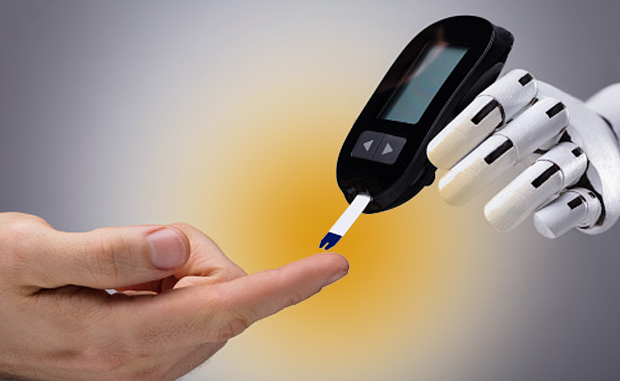

Type 2 Diabetes Patients Can Benefit from AI-Powered Nudges: Report

Getting type 2 diabetes patients to go the last mile in changing behaviors has the potential to improve their blood glucose numbers significantly over time. The issue is how to do it effectively and consistently.
Personalized artificial intelligence(AI)-powered health nudges could be part of the solution, according to a recent report from telehealth provider Teladoc Health.
The report states that patient engagement tripled and A1C numbers decreased by 0.4 points, according to new data that the telehealth provider presented at the American Diabetes Association’s 84th scientific sessions.
In addition, Teladoc members with diabetes who received weekly emails with personalized next-best actions powered by predictive modeling were 50% more likely to engage with a health coach.
The study was conducted over nine months and shows a clear connection between program engagement and improved clinical outcomes, Teladoc states. The data show that patients who had been identified as at risk for uncontrolled diabetes who received personalized notifications through their mobile or cellular devices reduced their A1C levels from an average of 8.2% to 7.8%.
The findings come on the heels of an earlier study published in the Journal of Medical Internet Research that demonstrated Teladoc Health’s ability to proactively identify a person at risk for uncontrolled outcomes more than a year in advance of using AI.
That study also showed that dedicated coaching can improve diabetes control. In the study, Teladoc evaluated how tailored email content can be used to increase one-on-one coaching in digital programs for type 2 diabetes patients. The newsletters used predictive models to suggest the next-best action (coaching, digital activities, etc.) for patients to manage their conditions based on members’ engagement with Teladoc Health’s services.
Members who received personalized next-best actions, powered by predictive modeling, in their enhanced weekly email were 50% more likely to engage in coaching services, compared with those who received the standard newsletter.
The Teladoc studies run counter to a Peterson Health Technology Institute analysis released in March that found digital diabetes management tools fail to deliver meaningful health benefits to patients while increasing spending.



